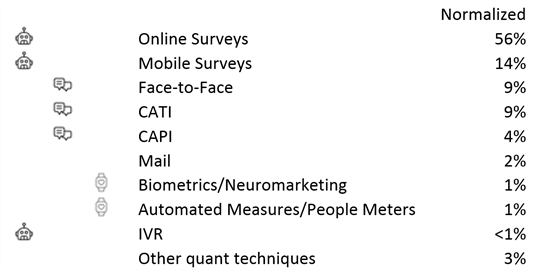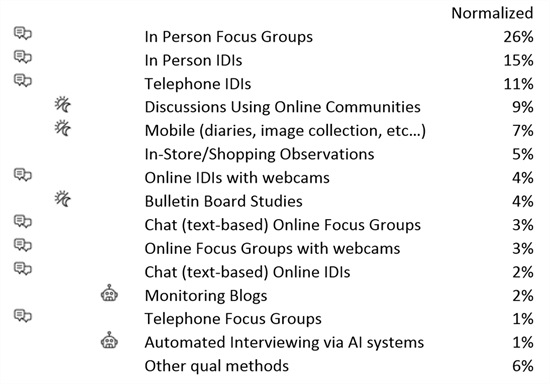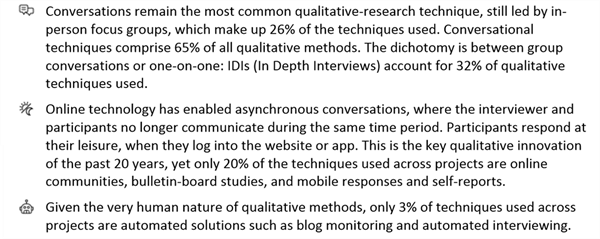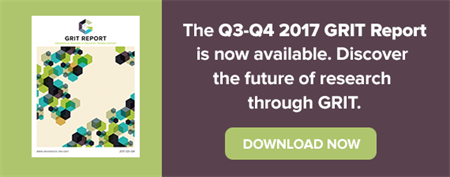For this cycle of the twice-annual GRIT research-on-research study, we delved into the proportional usage of qualitative and quantitative techniques across projects. Overall, 59% of the techniques used are quant, and 35% are qual. (A project that used both would presumably skew the average closer to 50/50.)
Q16. First, we’d like to understand your usage of Quantitative vs. Qualitative approaches. We define Quantitative as any approach that utilizes sampling of representative segments of a population or a dataset to generate a statistical value. Qualitative is any approach that is focused on understanding a population or data source in a non-statistical manner. Please assign a percentage based on the proportion of research projects you have used them on. Your answer must total 100%.
| Quantitative | 60% |
| Qualitative | 36% |
| Other | 4% |
Q18. We want to understand your use of common quantitative methods as a percentage of projects you have conducted so far this year. Using the slider, what percentage of qualitative projects have you used each method for? Your answer must total 100%.

Automation has trumped personal research for the majority of quantitative projects.

Q17. We want to understand your use of common qualitative methods as a percentage of projects you have conducted so far this year. Using the slider, what percentage of qualitative projects have you used each method for? Your answer must total 100%.

Unlike quant research, qual research remains personal—and real-time. The main innovation has been personal but asynchronous rather than automated data collection.

When the cyborg revolution conquers research, quant will be the first empire to fall. Qualitative research will hold the high ground, remaining a labor-intensive, personal methodology for years to come.
